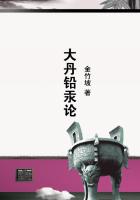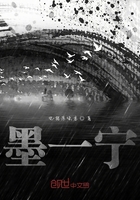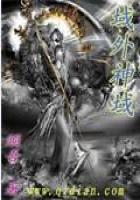Marcellus alone, by a decree of the senate, triumphed. The triumph was in magnificence, opulence, spoils, and the gigantic bodies of the captives most remarkable. But the most grateful and most rare spectacle of all was the general himself, carrying the arms of the barbarian king to the god to whom he had vowed them. He had taken a tall and straight stock of an oak, and had lopped and formed it to a trophy. Upon this he fastened and hung about the arms of the king, arranging all the pieces in their suitable places. The procession advancing solemnly, he, carrying this trophy, ascended the chariot;and thus, himself the fairest and most glorious triumphant image, was conveyed into the city. The army adorned with shining armour followed in order, and with verses composed for the occasion, and with songs of victory celebrated the praises of Jupiter and of their general. Then entering the temple of Jupiter Feretrius, he dedicated his gift; the third, and to our memory the last, that ever did so. The first was Romulus, after having slain Acron, king of the Caeninenses: the second, Cornelius Cossus, who slew Tolumnius the Etruscan: after them Marcellus, having killed Britomartus, king of the Gauls; after Marcellus, no man. The god to whom these spoils were consecrated is called Jupiter Feretrius, from the trophy carried on the feretrum, one of the Greek words which at that time still existed in great numbers in Latin: or, as others say, it is the surname of the Thundering Jupiter derived from ferire, to strike.
Others there are who would have the name to be deduced from the strokes that are given in fight; since even now in battles, when they press upon their enemies, they constantly call out to each other, strike, in Latin feri. Spoils in general they call Spolia, and these in particular Opima; though, indeed, they say that Numa Pompilius, in his commentaries, makes mention of first, second, and third Spolia Opima; and that he prescribes that the first taken be consecrated to Jupiter Feretrius, the second to Mars, the third to Quirinus; as also that the reward of the first be three hundred asses;of the second, two hundred; of the third, one hundred. The general account, however, prevails, that those spoils only are Opima which the general first takes in set battle, and takes from the enemy's chief captain whom he has slain with his own hand. But of this enough. The victory and the ending of the war was so welcome to the people of Rome, that they sent to Apollo of Delphi, in testimony of their gratitude, a present of a golden cup of an hundred pound weight, and gave a great part of the spoil to their associate cities, and took care that many presents should be sent also to Hiero, King of the Syracusans, their friend and ally.
When Hannibal invaded Italy, Marcellus was despatched with a fleet to Sicily. And when the army had been defeated at Cannae, and many thousands of them perished, and a few had saved themselves by flying to Canusium, and all feared lest Hannibal, who had destroyed the strength of the Roman army, should advance at once with his victorious troops to Rome, Marcellus first sent for the protection of the city fifteen hundred soldiers from the fleet. Then, by decree of the senate, going to Canusium, having heard that many of the soldiers had come together in that place, he led them out of the fortifications to prevent the enemy from ravaging the country. The chief Roman commanders had most of them fallen in battles; and the citizens complained that the extreme caution of Fabius Maximus, whose integrity and wisdom gave him the highest authority, verged upon timidity and inaction. They confided in him to keep them out of danger, but could not expect that he would enable them to retaliate. Fixing, therefore, their thoughts upon Marcellus, and hoping to combine his boldness, confidence, and promptitude with Fabius's caution and prudence, and to temper the one by the other, they sent, sometimes both with consular command, sometimes one as consul, the other as proconsul, against the enemy. Posidonius writes, that Fabius was called the buckler, Marcellus the sword of Rome. Certainly, Hannibal himself confessed that he feared Fabius as a schoolmaster, Marcellus as an adversary: the former, lest he should be hindered from doing mischief; the latter, lest he should receive harm himself.
And first, when among Hannibal's soldiers, proud of their victory, carelessness and boldness had grown to a great height, Marcellus, attacking all their stragglers and plundering parties, cut them off, and by little and little diminished their forces. Then carrying aid to the Neopolitans and Nolans, he confirmed the minds of the former, who, indeed, were of their own accord faithful enough to the Romans; but in Nola he found a state of discord, the senate not being able to rule and keep in the common people, who were generally favourers of Hannibal. There was in the town one Bantius, a man renowned for his high birth and courage. This man, after he had fought most fiercely at Cannae, and had killed many of the enemies, at last was found lying in a heap of dead bodies, covered with darts, and was brought to Hannibal, who so honoured him, that he not only dismissed him without ransom, but also contracted friendship with him, and made him his guest. In gratitude for this great favour, he became one of the strongest partisans of Hannibal, and urged the people to revolt.
Marcellus could not be induced to put to death a man of such eminence, and who had endured such dangers in fighting on the Roman side; but, knowing himself able, by the general kindliness of his disposition, and in particular by the attractiveness of his address, to gain over a character whose passion was for honour, one day when Bantius saluted him, he asked him who he was; not that he knew him not before, but seeking an occasion of further conference. When Bantius had told who he was, Marcellus, seeming surprised with joy and wonder, replied:















